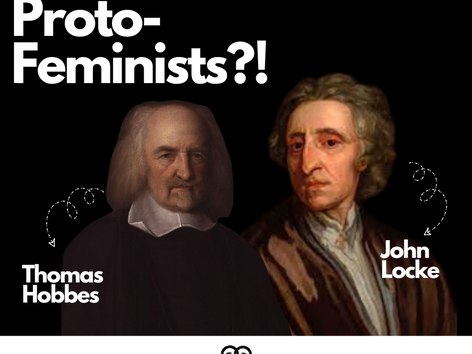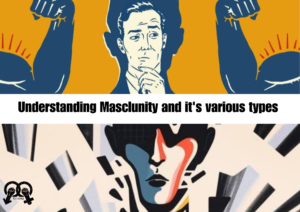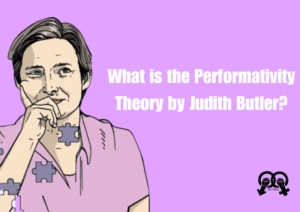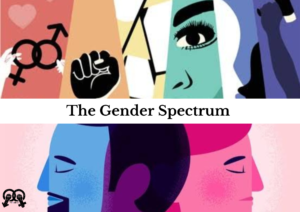Learning Outcomes:
- What is Social Contract and why is it relevant in Gender studies
- Ideas of social contract theorists including Hobbes and Locke
- What is Proto-Feminism
- Relevance of their ideas in establishing a ‘Masculinist State’ of Today
Although the idea of fighting inequality through feminist ideals is relatively new, Locke and Hobbes; writings reveal the existence of proto-feminism, which sought equality at a period when it seemed inconceivable to do so.
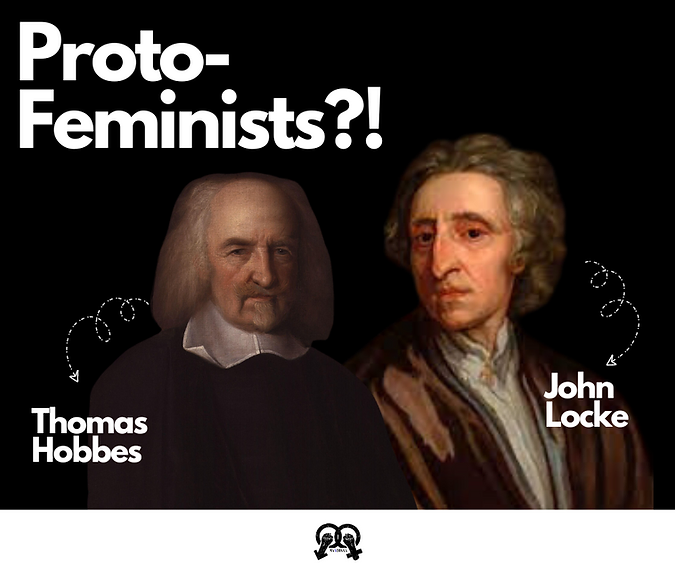
In a time when ideas about masculinity predominated, these intellectuals challenged traditional patriarchal conventions.
What is Social Contract?
To delve, into the writers of social contracts, this author believes what a social contract means is crucial to shed light on. The social contract is a political philosophy, a social arrangement or a voluntarily reached agreement which believes that individuals (humans) were first born into an anarchic condition of nature that could be miserable without a power protecting them. Hence, a community (and a government) was created through the use of a social contract by using natural reason to be free from danger (Britannica, 2023).
So, despite what its name might suggest, the social contract is not a document but rather the idea of a situation in which a higher authority has a duty to safeguard its citizens. It would be interesting to learn if the authors of this contract’s theory took into account the fact that citizens include both men and women, given that this contract, after all, conveys the idea of the foundation of a state.
It can be said that The idea of equality served as the precondition and the cornerstone of these Social Contract pioneers; theories and philosophies to explain the necessity and the upsurge of political authority or a government superior to man. Nonetheless, it is argued in today’s modern world that even though these social contract theorists have significantly contributed to the political ideology of equality, they left an unclear nature of feminist equality, interpretations, and involvement in their work.
This short essay aims to manifest Hobbes’; and Locke’s perceptions of women’s equality. It will argue that these social contract theorists should be categorised as proto-feminists, if not feminists, and provide further information on proto-feminism.
Hirschmann & McClure (2010) question “Where, after all, were all the women in the history of political thought?”
This question is valid because it seems as if women were omitted from the canons of philosophy, even when specifically speaking about equality in society (Hirschmann & McClure, 2010). It is argued by Butler (1978) that Locke never specifically dealt with the role of women in the formation of society. Whereas Hobbes only made a few references to women throughout his corpus, being explicitly concerned with political power, which in 17th century England was a period in which Elizabeth’s reign was fodder for a burgeoning literature on patriarchal theories of politics, which ironically also excluded women from its concerns for the most part (Hirschmann & Wright, 2012).
For example, Hobbes writes in Leviathan “There is not always that difference of strength, or
prudence between the man and the women, as that the right can be determined without war (1996: XX.4)”
Rustighi (2020) notes that even though Hobbes sees women as free and equal to men in the state of nature (Society before the emergence of the State) and war, he postulates their subjection to male rule in the civil state without any apparent explanation. It is seen that Hobbes suggests that the subjugation of the mother to the father epitomises the neutralisation of the ancient principle of ‘governance’, which he replaces with a novel concept of ‘power’ (Rustighi, 2020). It can be said that this ambiguous nature of Hobbes’s views on women makes his true perception unclear. Moreover, Locke’s repetitive use of the term ‘man’ throughout his work has been a matter of debate among feminist scholars in their analysis of the social contract theory.
Biesecker & Winterfeld (2018) argue that “The entire narrative of the social contract expresses a particular, masculine creative force, the ability to create and give rise to fresh manifestations of political existence”.
The social contract ensures everyone's freedom, but because freedom as autonomy is still associated with sexual dominance, the concurrent denial and affirmation of women's freedom, supported by contract theorists, is constantly reconstructed.
Biesecker & Winterfeld, 2018, 9
Despite all the testaments stating that social contract theorists discounted women, there are various indications of equality for women in the social sphere of society, which reflects proto-feminism. Proto-feminism is a philosophical tradition and concept that anticipates modern feminist ideas in the period when such concepts were still unknown, i.e., before the 19th and 20th centuries, the era of Locke and Hobbes. (Dammann-Matthews, 2014).
To better understand the concept of proto-feminism, we can dive into an actual scenario that happened in New York City between 1940 to 1955. The famously recognised ‘Proto-Feminism in the Print Studio’; is mostly focused on the female artists who were participants in Atelier 17, a pioneering printmaking studio. These group print exhibitions gave female artists a unique chance to win critical acclaim at a time when they were up against structural sexism to obtain solo exhibitions at prestigious galleries (Weyl,2019). Women’s involvement in the community of mid-century printmakers also had a big overall effect.
Through these networks, women were able to connect with other people who shared their professional aspirations, share information about their problems, and develop a sense of community with other marginalised artists. In this sense, women’s involvement in printmaking in the middle of the 20th century encouraged a variety of proto-feminist beliefs and behaviours. Similarly, such concepts were advanced by Hobbes and Locke which can be said to have ignited feminism and the notion of gender equality in literature.
To start with, as argued by Hulvat (2003), the debate on the word ‘man’ by scholars can be counted as avoidable, picturing the era Locke used the phrase in, and it can simply be understood as a reference to ‘entire mankind’ and not gendered differentiation; however, these are just assumptions. Furthermore, in the first of his Two Treatises of Government, John Locke argues that the rights of mothers should be taken as seriously as the rights of fathers (Waldron, 2010). This social thought brings a system of egalitarianism between men and women; however, it falls short because Locke limits its scope by saying that control of the mother is only possible if the father is absent. The privilege of women not being called “property” given by Locke is also narrow, as it does not directly imply the equality of women to men. However, it did help women maintain and own property, which ultimately resulted in better financial conditions for women.
Even though Hobbes was not a liberal thinker like Locke, he nonetheless made contributions to the equality of women. Hobbes is praised by academics for realising—to paraphrase the feminist catchphrase—that the “personal is political” and for obfuscating the boundaries between the private and public spheres in order to subvert patriarchy. Hobbes makes it clear that women, who are likewise in a natural state of war, share fundamental equality with men. Women and men battle for resources and dominance (Mitchell, 2010).
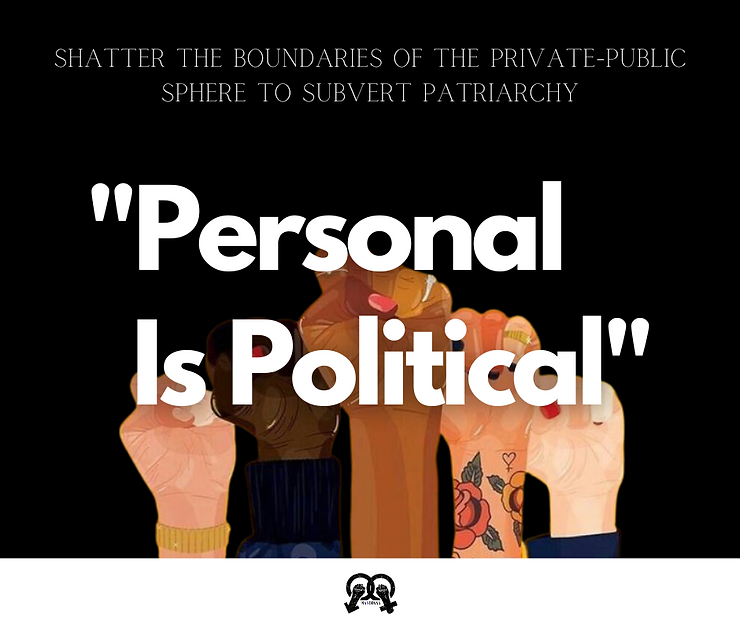
To sum up, social contract theorists challenged patriarchal ideologies in one way or another. Although Locke and Hobbes cannot be considered “feminists” they did provide women with rights that fall under the umbrella of equality because those were far-reaching at the time. Such as declaring that women are equally free as men in social life and combat. Additionally, children should be treated equally, with respect, and given authority.
Despite the fact that these rights have restrictions, they were progressive by the standards of the day. Proto-feminism, or the movement to create an equal society, is evident in the writings of both Locke and Hobbes. However, it conveys the ‘idea’ of an equal state as writings of both Hobbes and Locke lack a certain feminist idea (though ‘proto-feminist” exists ) in their writing as this author has shed light on, time and again.
Hence, would it be incorrect to assume that limiting to proto-feminist notions, social contract theories gave their node to a state with a masculinist perception?
References
- Biesecker, A., & von Winterfeld, U. (2018). The notion of multiple crisis and feminist perspectives on social contract. Gender, Work & Organization, 25(3), 279-293
- Britannica, T. Editors of Encyclopaedia (2023, April 24). social contract. Encyclopedia Britannica. https://www.britannica.com/topic/social-contract
- Butler, M. (1978). Early Liberal Roots of Feminism: John Locke and the Attack on Patriarchy. American Political Science Review, 72(1), 135-150
- Dammann-Matthews, J. A. (2014). Proto-Feminism in Ancient Global Texts. “Equality, Concept of” (2021) Dictionary of American History. Encyclopedia. Retrieved from https://www.encyclopedia.com/history/dictionaries-thesauruses-pictures-and-press-releases/equality-concept
- Hirschmann, N. J., & McClure, K. M. (Eds.). (2010). Feminist Interpretations of John Locke. Penn State Press.
- Hirschmann, N. J., & Wright, J. H. (2012). Feminist Interpretations of Thomas Hobbes. Penn State Press.
- Hulvat, J. F. (2003). A gendered analysis of the historical Locke: Rethinking Locke’s “Second Treatise on Government”. Miami University.
- IvyPanda. (2019, October 31). Hobbes and Locke on the Issue of Equality. Retrieved from
- https://ivypanda.com/essays/hobbes-and-locke-on-the-issue-of-equality/
- Mitchell, M. (2010). The problem of women in Hobbes’s “Leviathan” (Doctoral dissertation, The University of North Carolina at Chapel Hill).
- Rustighi, L. (2020). Rethinking the sexual contract: The case of Thomas Hobbes. Philosophy & Social Criticism, 46(3), 274-301.
- Waldron, J. (2010). ‘The Mother Too Hath Her Title’;-John Locke on Motherhood and Equality. NYU School of Law, Public Law Research Paper, (10-74)
- Weyl, C. (2019). The Women of Atelier 17: Modernist Printmaking in Midcentury New York. Yale University Press.
References
GOPAL, M. (2013). Ruptures and Reproduction in Caste/Gender/Labour. Economic and Political Weekly, 48(18), 91–97. http://www.jstor.org/stable/23527313
Lingam, L, (2011). Reproductive Rights and Exclusionary Wrongs: Maternity Benefits. Economic and Political Weekly, 46, 94-103. https://www.researchgate.net/publication/228843205_Reproductive_Rights_and_Exclusi onary_Wrongs_Maternity_Benefits.
Engels, F. (1902). The origin of the family, private property and the state.
Gopal, M. (2012). Caste, sexuality and labour: The troubled connection. Current
Sociology, 60(2), 222–238. https://doi.org/10.1177/0011392111429223.
Delphy, C. (1988). Patriarchy, domestic mode of production, gender, and class. In Marxism and the Interpretation of Culture (pp. 259–267). Macmillan Education UK. http://dx.doi.org/10.1007/978-1-349-19059-1_18
Nagarajan, R. (2018, January 12). Fertility rate below replacement level for all but Hindus & Muslims. Times Of India. https://timesofindia.indiatimes.com/india/fertility-rate-below-replacement-level-for-all-bu t-hindus-muslims/articleshow/62465588.cms .
Ananya Atri is an International Relations student and currently interns at the Centre for Interdisciplinary Research at her university. She has been part of Global Youth India and right now serves as the Director of Communications at NGO Cultural Diversity for Peaceful Future in Georgia. Her interest in writing for Mandonna stems from her belief in equality and inclusion.


